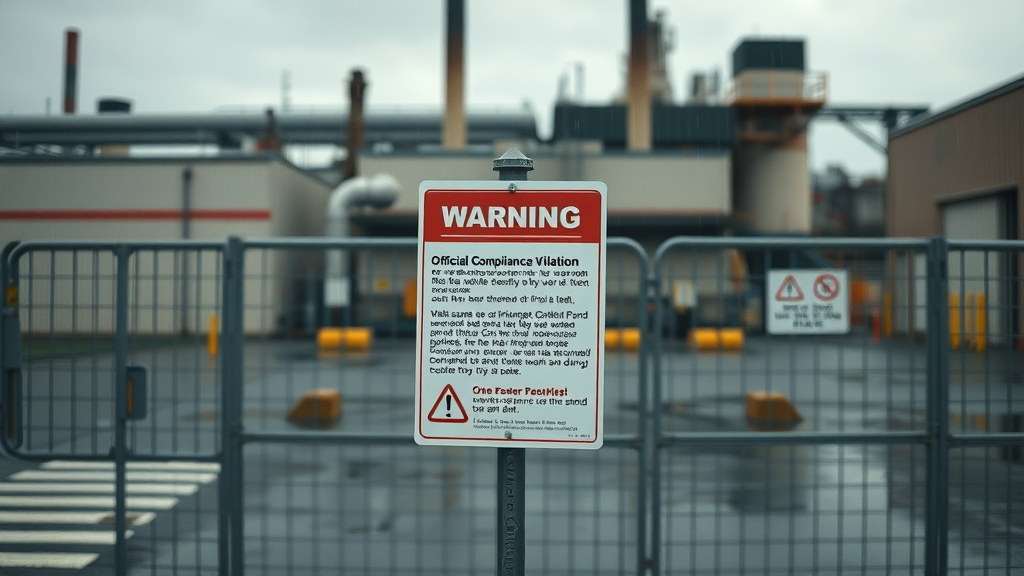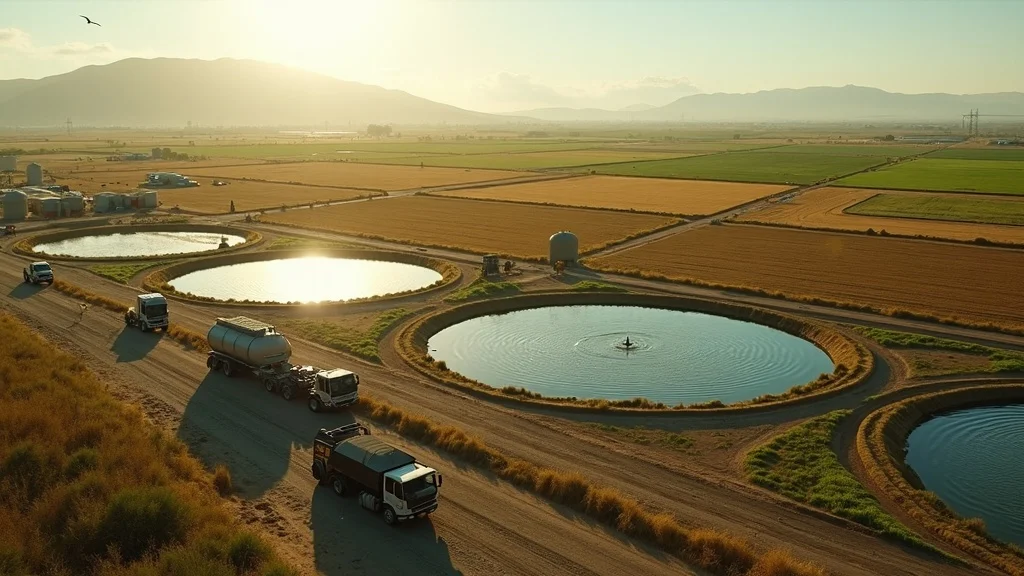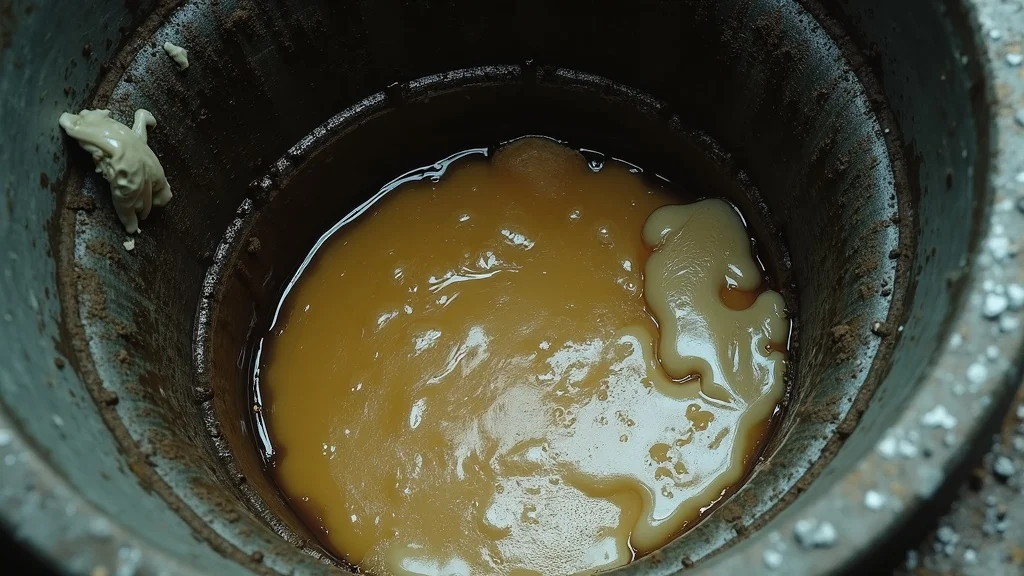Startling fact: Non-compliance with wastewater regulations can lead to heavy fines, public exposure, and even facility shutdowns — yet many companies remain unclear about who within their team is responsible for managing these critical wastewater compliance roles. This article demystifies the key roles and outlines how companies can proactively address compliance challenges before regulators intervene.
Startling Facts About Wastewater Compliance Roles
Understanding wastewater compliance roles is vital for any company managing industrial wastewater discharge. Environmental regulations, such as the Clean Water Act, set federal baseline standards, but regional agencies like Los Angeles County or Riverside County often impose stricter limits. This variation means companies must adapt their wastewater management strategies according to local rules, requiring clear internal responsibilities to ensure compliance.
For instance, exceeding discharge limits for parameters like sulfides, total suspended solids (TSS), chemical oxygen demand (COD), or biochemical oxygen demand (BOD) can trigger regulatory warnings, fines, or worse. Assigning specific personnel to handle these compliance issues helps companies react promptly.

What Is Wastewater Compliance? Defining Key Terms and Regulatory Framework
Understanding Regulatory Agencies and Their Role in Wastewater Treatment
The foundation of wastewater compliance lies within federal and local regulatory frameworks. At the federal level, the Clean Water Act establishes minimum standards that all states and municipalities must adhere to or exceed. Steve Manii of CSI Environmental, Inc. explains,
"The federal mandate is the baseline, but counties like LA and Riverside can impose more stringent wastewater treatment requirements."
Local sanitation districts use methods like 24-hour composite sampling to monitor wastewater discharge quality. If any parameter exceeds permitted limits — such as pH being outside 6 to 9.10 range, or elevated fats, oils, and grease (FOG) — regulatory agencies issue notices requiring corrective action. These agencies play a crucial role in enforcing compliance and ensuring environmental safety.

Who Handles Wastewater Compliance Roles Within a Company?
Environmental Health and Safety (EHS) Managers
Typically, the first point of contact for wastewater compliance within a company is the Environmental Health and Safety (EHS) manager or supervisor. These professionals are tasked with overseeing compliance with environmental regulations, including wastewater discharge permits. Their responsibilities often include reviewing lab reports, coordinating with maintenance teams, and liaising with regulatory bodies.
Steve Manii highlights,
"The point person varies, but common titles include environmental health safety manager, maintenance supervisor, or plant manager."

Maintenance and Plant Operations Teams
Besides EHS managers, maintenance and plant operations teams often take hands-on responsibility for wastewater treatment systems. Their role includes operating, maintaining, and adjusting equipment to ensure treated wastewater meets discharge criteria. They might implement control measures such as oxidizer injections (e.g., chlorine or hydrogen peroxide) to neutralize pollutants like sulfides.
These teams’ daily involvement with treatment infrastructure situates them well to detect emerging issues early. Maintaining equipment according to permit specifications is vital for ongoing compliance.

The Compliance Notification Process: From Warning to Resolution
Common Causes of Non-Compliance
Non-compliance typically arises from parameters exceeding permitted discharge limits. Common causes include elevated sulfides, total suspended solids (TSS), chemical oxygen demand (COD), biochemical oxygen demand (BOD), and improper pH levels. Industrial activities such as deep tank cleaning can temporarily spike pollutants, causing out-of-compliance readings during sampling. Regulatory agencies monitor these parameters closely to safeguard water quality.
When a violation occurs, companies receive a written warning detailing the specific out-of-compliance issue, including references to discharge permit limits. This notification also requires an action plan to remedy the problem and prevent recurrence. Expert consultation can facilitate effective remedies, such as chemical dosing or equipment upgrades.

Retesting and Follow-Up Procedures
After receiving a non-compliance notice, companies must perform retesting to demonstrate resolution of the issue. Regulatory bodies expect timely corrective actions; failure to comply could lead to escalating warnings and penalties. Monthly composite samples typically serve as checkpoints. If issues persist beyond initial warnings, regulators may impose fines or operational restrictions.
Regular communication with regulators and transparent reporting of remedial efforts are key to resolving compliance challenges efficiently. Steve Manny emphasizes the importance of addressing problems before violations multiply, as this can prevent costly penalties and reputational damage.

Consequences of Non-Compliance in Wastewater Treatment
Financial Penalties and Operational Risks
Ignoring wastewater compliance obligations can result in severe financial penalties. Regulators may levy fines that increase with repeated violations, impacting a company’s bottom line significantly. More serious infractions can lead to temporary or permanent shutdowns of facilities until compliance is achieved.
Operational disruptions from compliance failures not only delay production but also strain resources dedicated to resolving regulatory issues. Companies must view wastewater compliance roles as integral to overall risk management strategies to avoid these costly consequences.
Public Disclosure and Reputation Impact
Beyond fines, public disclosure of non-compliance through local media, such as the Los Angeles Times publishing names of violators, can damage a company’s reputation. Negative publicity affects stakeholder trust, customer relationships, and can influence investor perceptions.
Companies with a transparent and proactive approach to wastewater compliance mitigate reputational risks. Partnering with specialist firms like CSI Environmental can provide credible support, demonstrating commitment to sustainable operations.

How CSI Environmental Supports Companies with Wastewater Compliance Roles
Initial Consultation and Documentation Review
CSI Environmental offers expert support tailored to a company’s specific wastewater challenges. The process begins with a brief phone consultation to understand the compliance issue. This is followed by an onsite visit to review lab reports from the past 3 to 6 months, compliance notices, and discharge permits.
This comprehensive review allows CSI Environmental to assess problem areas and prepare custom recommendations. Steve Manii explains,
"We consult with you to offer cost-effective ways to neutralize sulfides and other pollutants before discharge."
Customized Solutions for Wastewater Treatment Challenges
Depending on the violation’s nature, CSI Environmental may suggest chemical treatment options like chlorine or hydrogen peroxide dosing, or recommend specialized equipment upgrades to reduce parameters such as TSS, COD, and BOD. Their extensive knowledge of local regulatory environments enables them to liaise effectively with sanitation districts.
Through this partnership, companies gain a clearer path to compliance, cost savings, and operational continuity.
Key Documents Required for Wastewater Compliance Assessment | |
Document Type |
Purpose |
|---|---|
Third-party Lab Reports (last 3-6 months) |
Analyze wastewater discharge quality trends to identify violations |
Written Compliance Notices from Regulatory Bodies |
Detail specific issues requiring correction and deadlines |
Surcharge Statements |
Outline fees based on TSS, COD, and BOD discharge levels; identify cost-saving potential |

People Also Ask: Common Questions About Wastewater Compliance Roles
What is wastewater compliance? — Ensuring wastewater discharge meets all regulatory standards to protect the environment.
What does an environmental compliance specialist do? — They manage and monitor activities to maintain regulatory adherence in wastewater treatment and related environmental programs.
How to get into environmental compliance? — Through training, certification, and understanding local regulations relevant to wastewater and environmental safety.
Is wastewater treatment a hard job? — It involves technical knowledge and constant monitoring but is highly rewarding for those committed to environmental protection.
Key Takeaways on Wastewater Compliance Roles
Wastewater compliance roles are critical for meeting federal and local regulations effectively.
EHS managers, maintenance teams, and plant managers commonly handle these responsibilities in companies.
Failure to comply can lead to fines, operational shutdowns, and public disclosure of violations.
Engaging experts like CSI Environmental can streamline compliance, reduce costs, and ensure long-term sustainability.
Conclusion: Ensuring Effective Wastewater Compliance Roles in Your Company
Assign clear responsibilities for wastewater compliance and seek expert consultation early to avoid costly penalties and disruptions.
Get Your FREE Compliance Assessment Today
Don't wait for regulators to find your compliance gaps. Contact CSI Environmental for a detailed evaluation and tailored solutions to keep your company compliant and operational.
Get Your FREE Compliance Assessment
Call us: (800) 690-2436

Understanding the roles and responsibilities associated with wastewater compliance is crucial for ensuring that your company adheres to environmental regulations and avoids potential penalties. The U.S. Environmental Protection Agency (EPA) outlines specific responsibilities for industrial users, including performing self-monitoring, submitting reports and notifications to control authorities, and maintaining records of activities. (epa.gov)
Additionally, the EPA’s Compliance Advisors for Sustainable Water Systems Program offers no-cost technical assistance to small drinking water and wastewater systems, helping them achieve and maintain compliance with the Clean Water Act and Safe Drinking Water Act. This program provides support in reviewing permit requirements, troubleshooting non-compliance issues, and developing training programs for staff. (epa.gov)
By understanding these roles and utilizing available resources, your company can proactively address compliance challenges and ensure adherence to all applicable wastewater regulations.
 Add Row
Add Row  Add
Add 




Write A Comment